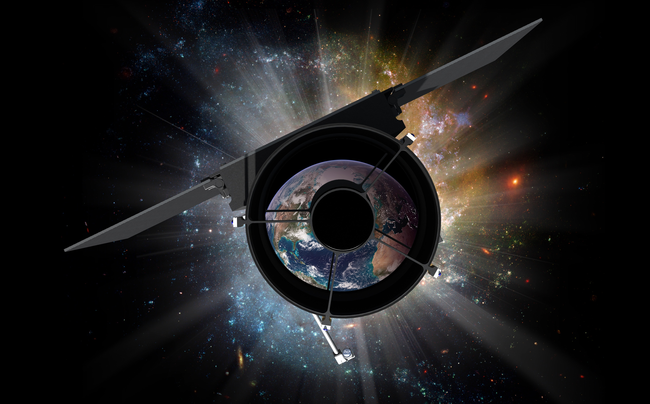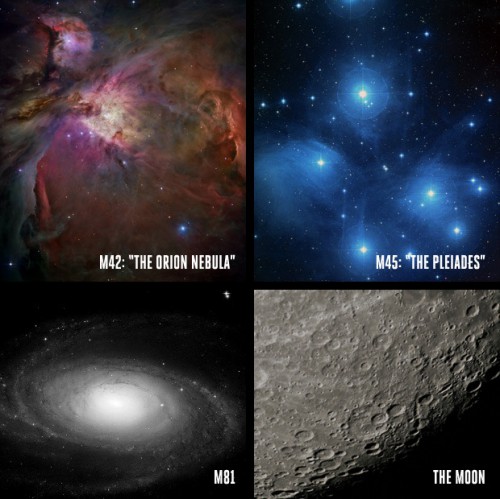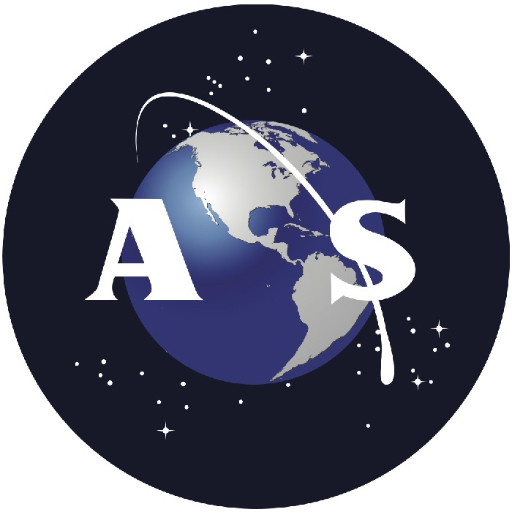
After a month-long campaign, Planetary Resources, Inc., a company with its eye on mining asteroids, reached its goal on Sunday, June 30 of raising $1.5 million through crowdfunding. The money, pledged by 17,600 supporters through the Kickstarter website, will go toward launching the world’s first public-use space telescope—Arkyd. Due to be placed in orbit in 2015, Arkyd will be available for educational, recreational, and scientific uses, including its main goal of hunting down asteroids that pass close to the Earth.
Everyone who has donated to the project will be eligible for a “space selfie.” Participants just need to send a photo of themselves, or their partner, pet, or whatever, and it will be displayed on the spacecraft’s external LED display as it orbits the Earth. Arkyd’s camera arm will snap a picture of each supporter’s personal photo with the Earth in the background and send the image back. More generous pledgers will be given a slice of time to point the telescope in a direction of their choosing—surely the best webcam ever—or donate their observing time to a scientific or educational group.

More than 2,000 donors have handed over their observing time to education, so that students from around the world will be able to bring the cosmos live into their classrooms. A further 150 backers of the project will use the instrument for their own research. Among the celebrities who’ve contributed to the Arkyd crowdfunding drive are Star Trek‘s Brent Spiner (Data), Robert Picardo (Voyager’s holographic doctor), and Rod Roddenberry (son of Gene, the show’s creator).
On the day that Planetary Resources reached its fundraising goal on Kickstarer, it also announced that Richard Branson, chairman of Virgin Group, which includes Virgin Galactic, has become a core investor in the company, whose long-term goal is to tap the untold mineral wealth of near-Earth asteroids. Other industry leaders who are helping finance and/or advise the organization include Google CEO Larry Page and executive chairman Eric Schmidt, entrepreneur and one-time presidential candidate Ross Perot, filmmaker and explorer James Cameron, and Sara Seager, professor of Planetary Science and Physics at MIT. The company was founded in 2009 by Eric Anderson (who also founded Space Adventures, the first commercial spaceflight company) and Peter Diamandis (founder of the X-PRIZE foundation and many other space initiatives), and has Chris Lewicki, the flight director for NASA’s Spirit and Opportunity Mars rovers and mission manager for the Mars Phoenix lander surface operations, as its chief engineer.
The Arkyd space telescope is only a first, tentative step toward Planetary Resources’ ultimate goal of tapping the mineral wealth of asteroids. Its 20 cm-diameter mirror is 12 times smaller than that of the Hubble Space Telescope and is unlikely to make any Earth-shattering discoveries. But the satellite marks an important first step in engaging the public in an ongoing adventure that will see the launch of more powerful, low-cost Arkyd space missions that will identify asteroids suitable for future mining operations.
Planetary Resources representatives expressed optimism as to what this effort means for future similar endeavors.
“We’re excited that the first public-use orbiting space telescope, the ARKYD, is a go for launch. Because of the more than 17,000 people who backed this project through our Kickstarter campaign, we’re going to put a new tool for education and exploration into the hands of researchers, students, and teachers,” said Peter H. Diamandis, M.D., co-founder and co-chairman of Planetary Resources, Inc.
Want to keep up-to-date with all things space? Be sure to “Like” AmericaSpace on Facebook and follow us on Twitter: @AmericaSpace



